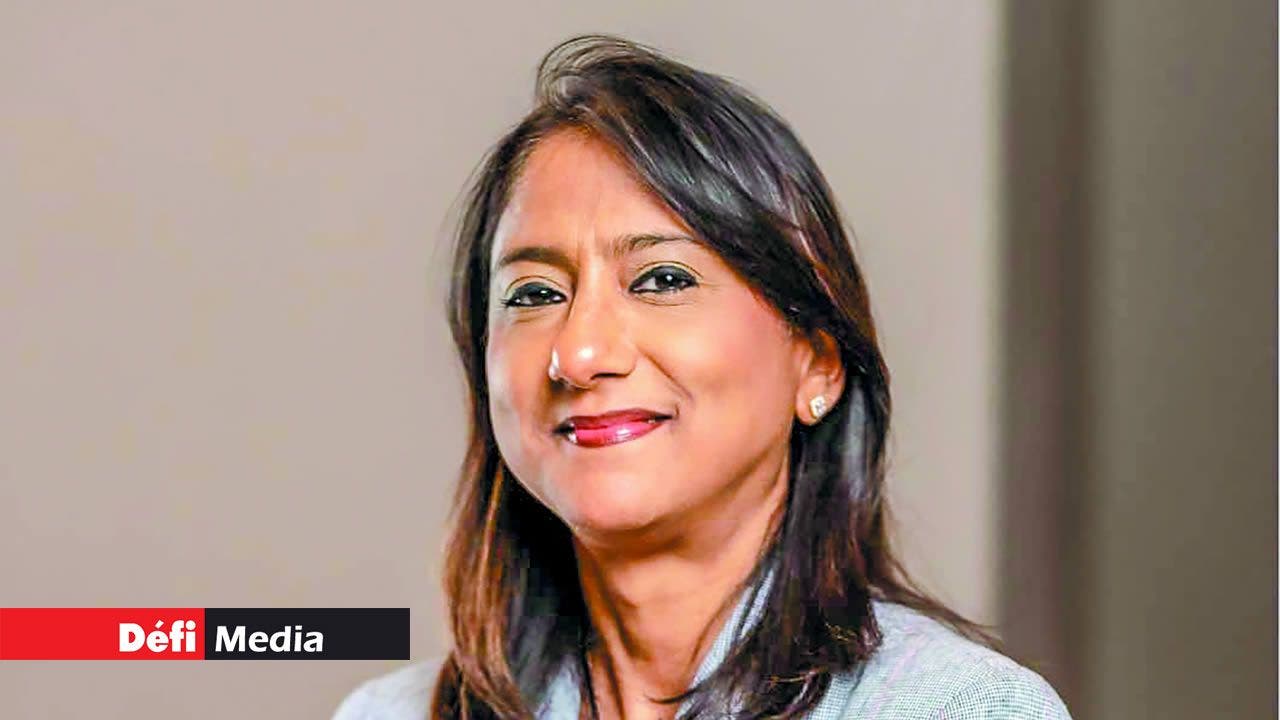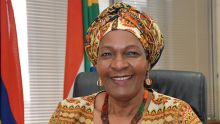
For this week’s interview, News on Sunday reached out to the Managing Director of Trident Mauritius. The firm celebrates 25 years of presence in our jurisdiction. A seasoned professional in the financial services sector, Shamima Mallam-Hassam talks about the forthcoming Financial Action Task Force. She also shares her views about the challenge in attracting and developing talents in the financial services sector.
Publicité
Trident Mauritius celebrates its 25 years office anniversary. So, how did everything start?
Trident started its activities in Mauritius on 15th March 2000 with a small office in Caudan. At that time Trident was mostly doing work for our BVI office and our Hong Kong Office. A few months later, Trident made the acquisition of Federal Trust which already had a significant presence in Mauritius and was dealing with a number of African companies including some large conglomerates and some private equity funds. The acquisition gave to Trident a good client base and a good penetration on the African continent.
From there Trident grew its portfolios of clients and the business but with a focus remaining on Africa. 90% of our books are Africa focused.
At the time we started in Mauritius, the private equity space was also starting to emerge in Africa and to support that industry the Africa Venture Capital Association (AVCA) was created and Trident served as the secretariat of AVCA until AVCA had its own office. Through AVCA Trident supported a number of first-time fund managers who are still working with us today.
Trident enjoys a strong reputation in Africa specially amongst the fund managers and the lawyers and tax advisers. Lot of our business come from referral from clients and our network of intermediaries. We have won several awards in Africa namely the Private Equity Africa Award as best fund administrator including the decade award as well as the Africa Global Funds Award as best fund administrator.
With hindsight, how do you assess the 25 years’ presence in Mauritius?
When we opened our doors 25 years ago, Mauritius was beginning its journey to becoming a trusted and credible financial services jurisdiction. At that time, Trident made a strategic choice—not just to open an office, but to invest deeply in the growth, integrity, and long-term development of Mauritius as an International Financial Centre.
Trident has been proud to grow alongside Mauritius, contributing to its credibility, resilience, and global standing.
Our contribution to the MIFC has been multidimensional — from supporting global fund managers, corporates and families, to facilitating inbound investment flows into Africa and Asia. We’ve been privileged to partner with regulators, professional associations, and fellow financial institutions to foster compliance-led growth and build investor confidence in Mauritius.
Where does Trident Mauritius fit in the International Financial Centre of Mauritius? Can we say that Trident Mauritius differ from the existing pool of companies or complementary to what is on the offer?
Mauritius is uniquely positioned—with its robust legal system, bilingual workforce, and expanding treaty network—to be the gateway for Africa-Asia investment flows. Trident Trust will continue to be at the forefront of this evolution—bringing together global best practices, cutting-edge digital solutions, and an unwavering client-centric approach.
What differentiates us from others is really our team, our people. Our Mauritius team is deeply committed to the growth and development of the African private equity industry as well as the corporates and actively participates in industry discussions and collaborates with regional business associations.
As the market evolves, we remain engaged in helping fund managers, corporates and families meet changing regulatory, investor and technological requirements.
Technology is at the heart of our operations, and we continue to invest in cutting-edge solutions. Our core fund administration technology, supported by institutional-grade platforms is tailored to meet our clients’ unique requirements.
We have grown alongside our pioneer clients supporting multiple generations of their funds with the same enthusiasm and commitment. We also extend this support to first time fund managers.
We firmly believe in the power of collaboration and building long-term, trusted partnerships. By nurturing enduring relationships and fostering collaboration with regulators and professional partners in Mauritius and beyond, we continue to deliver the highest level of service to our clients. We leverage our extensive network of professional relationships to offer bespoke solutions that meet the unique needs of each client.
What sets us apart in the African market is our approach. We do not just offer standardized services, we operate as a partner, working closely with our clients as an extension of their team. We take the time to truly understand their business and their requirements, crafting customized service packages to suit their specific needs. This personalized approach differentiates us from many volume-driven administrators in the market, allowing us to provide high-touch, client-focused solutions that drive success.
How would you describe the current regional and global financial services environment?
The global and regional financial services landscape in 2025 is characterized by a lot of volatility, regulatory shifts, and evolving geopolitical dynamics. These factors present both challenges and opportunities for the Mauritius International Financial Centre.
The African Continental Free Trade Area - AfCFTA is fostering greater economic integration across the continent. This development presents Mauritius with opportunities to serve as a financial conduit for intra-African trade and investment.
Asian economies, particularly China and India, are recalibrating their financial strategies in response to global uncertainties. Mauritius can leverage its strategic location and bilateral agreements to attract Asian investments seeking stable offshore jurisdictions.
Opportunities remain in the diversification of our financial services by expanding our offerings in fintech, sustainable finance, and wealth management to cater to evolving global demands. Mauritius should continue to position itself as the hub for African investments, capitalising on its robust legal framework and bilingual proficiency to attract investors targeting the continent. In addition, by adopting and promoting ESG standards, Mauritius can attract green investments and establish itself as a leader in sustainable finance within the region.
From an industry standpoint, do you witness a lack of expertise, which is a hindrance for further growth? Is there a quick-fix or long-term solution?
The financial services sector in Mauritius is facing a significant challenge in attracting and developing local talents while also retaining skilled professionals and attracting expatriate professionals. There is a noticeable brain drain and high turnover rate among financial services professionals, leading to a shortage of experienced candidates and a growing reliance on outsourcing certain activities.
Additionally, the emergence of Global Shared Services activities by multinational corporations has created heightened demand for professionals, further straining the labour market. The shortage of university graduates with relevant qualifications compounds the problem, posing a major threat to the growth and sustainability of the financial services sector.
With the ever-evolving regulatory landscape and financial crimes increasingly affecting organisations worldwide, there is a need for qualified, competent and experienced professionals to act as MLRO and Compliance Officers whilst meeting competency standards imposed by the FSC.
Some of the solutions that could be envisaged are:
Dedicated capacity building programmes specifically targeting skills set where we need the most the competencies i.e compliance, fund administration, trust specialists
Initiate an international mass recruitment campaign to address the immediate need for professionals in the sector
Encourage recruitment of young graduates from overseas through the Occupation Permit scheme
It’s been almost four years since Mauritius is off the FATF’s grey list. Now, should we still rejoice about it?
Mauritius exited the grey-list in record time, and ahead of the committed timeline with the FATF; this, in itself, is a clear indication that the jurisdiction is not only ready to comply with international standards but is also highly effective in doing so.
The exiting of the FATF’s grey-list entailed a deep public-private sector collaboration, and I have to say that this collaboration has continued on the AML-CFT front since then, especially with regulators.
FATF compliance is not a one-off achievement…it’s a continuous journey. The real challenge begins after delisting: sustaining it, demonstrating effectiveness over time, and remaining agile to evolving threats.
The risk of complacency is real. So instead of focusing on the past, we should shift the narrative toward our preparedness for the future.
Are we prepared for the next FATF review? How can the industry avoid another grey listing?
Mauritius has made significant progress since being removed from the FATF grey list in 2021, demonstrating our commitment to enhancing our AML/CFT framework. However, staying off the list is often more challenging than getting off it.
The National Risk Assessment is currently in its final stages of preparation before release, and this should be very soon.
There is also a strong partnership between the public and the private sector in ensuring that our AML-CFT laws are fully functional and effective, and this would come out in the assessor’s audit of our framework very clearly. There is already a working group between Mauritius Finance and the regulator on AML-CFT matters, and discussions are continuous to ensure that we comply with all the necessary prerequisites whilst maintaining our competitive edge.
As we approach the 2028 mutual evaluation, FATF’s focus will increasingly shift towards effectiveness, not just technical compliance.
In essence, it’s no longer solely about how many of the 40 Recommendations we’ve implemented on paper. It’s about how effectively these measures are enforced, whether they yield tangible results, and if they genuinely mitigate the risks we face today.
If we want to stay off the grey list and truly lead in this space, we need to keep raising our standards.
And how should be keep on raising the standards?
We need to show results. It’s not just about having policies — it’s about outcomes. Are there meaningful investigations? Are prosecutions happening? Are assets actually being recovered? Risk-based supervision has to be more than a concept — it needs to be visible in practice.
We need to build capacity. Our regulators, law enforcement agencies, and judiciary must have the resources, training, and independence to act decisively — and consistently.
We need real engagement. Public-private collaboration must go beyond formality. It should be structured, ongoing, and focused on solving real-world issues — together.
And we need consistency. Rules must apply across the board. Enforcement should be timely, proportionate, and transparent — without exceptions.
This isn’t about being reactive. It’s about staying ready — because financial crime doesn’t wait for mutual evaluations.
At the level of Mauritius Finance, we have urged the Government to earmark additional resources to ensure that we are able to effectively demonstrate our compliance to the highest standards of international norms when it comes to AML-CFT.
“Compliance is a habit, not a headline.” The true test of our readiness isn’t how we perform when FATF arrives — it’s how we operate every day when they’re not watching.”
Mauritius is ranked 48th by Secretariat International in the global ranking of Financial Crime Risk. Seychelles is 22nd. Botswana is 37th. Are we falling behind or is it a blip?
Rankings can serve as useful indicators, but they should be interpreted with nuance. The Secretariat International ranking is based on a range of factors, including political risk, legal systems, and the perceived likelihood of financial crime—not just FATF compliance.
That said, being ranked 48th should be a wake-up call. It signals that while our technical framework may be in place, perceptions of effectiveness—and possibly enforcement—may still be lagging.
In today’s global financial ecosystem, reputational risk matters as much as regulatory compliance. Mauritius must continue to lead—not just catch up.

Notre service WhatsApp. Vous êtes témoins d`un événement d`actualité ou d`une scène insolite? Envoyez-nous vos photos ou vidéos sur le 5 259 82 00 !














![[EN IMAGES] Conférence du World Hindi Secretariat (Mauritius)](https://defimedia.info/sites/default/files/styles/medium/public/thumbnail_2_13.jpg?itok=yQQLf-Uo)
![[En Images] Liverpool 3-1 Tottenham à la mi-temps](https://defimedia.info/sites/default/files/styles/square_thumbnail/public/img-20250427-wa0061.jpg?itok=XD1QmY23)
![[Info Soirée] : « mo pe demann bann lotorite kontinye zot resers »](https://defimedia.info/sites/default/files/styles/square_thumbnail/public/thumbnail_270425.jpg?itok=eis4wsYc)




